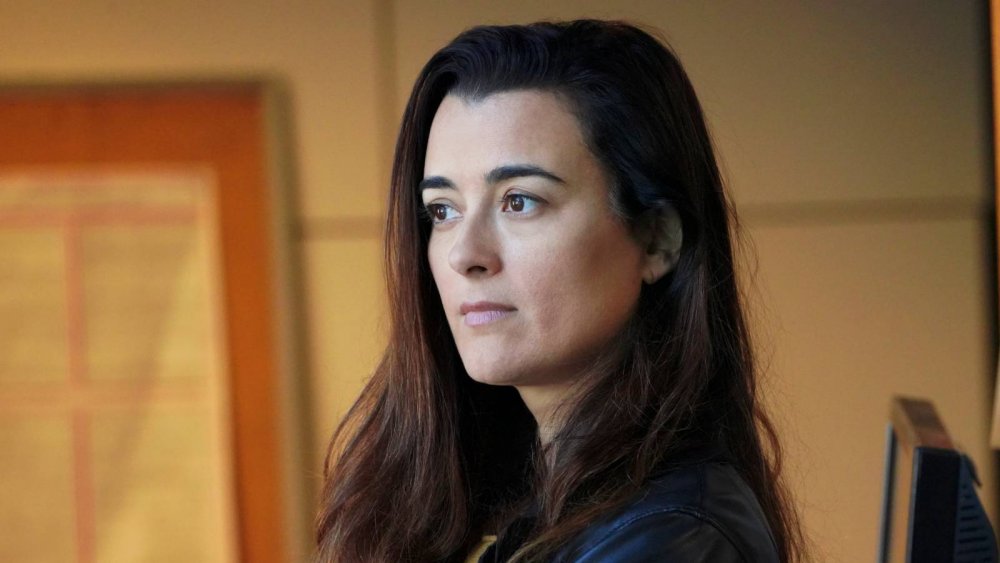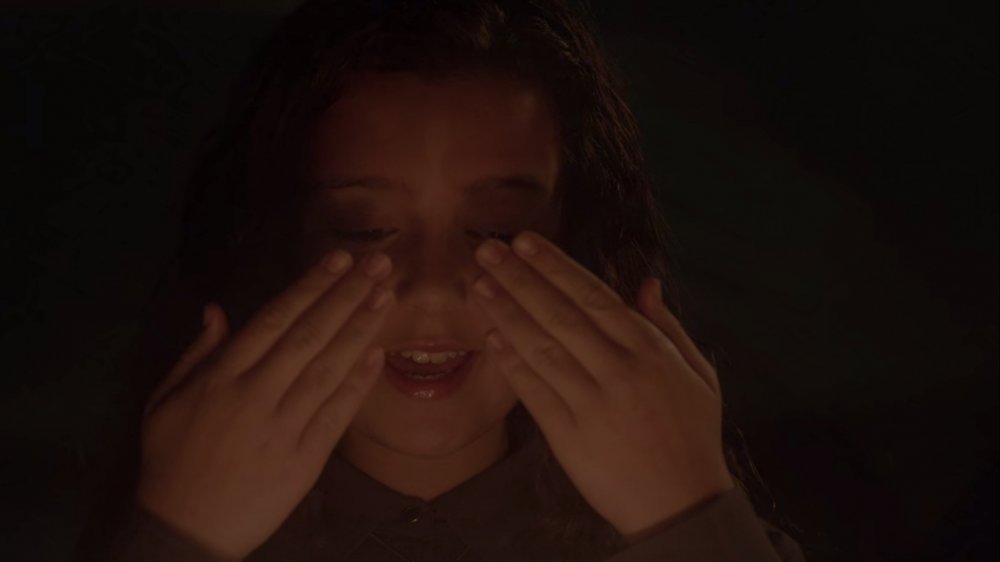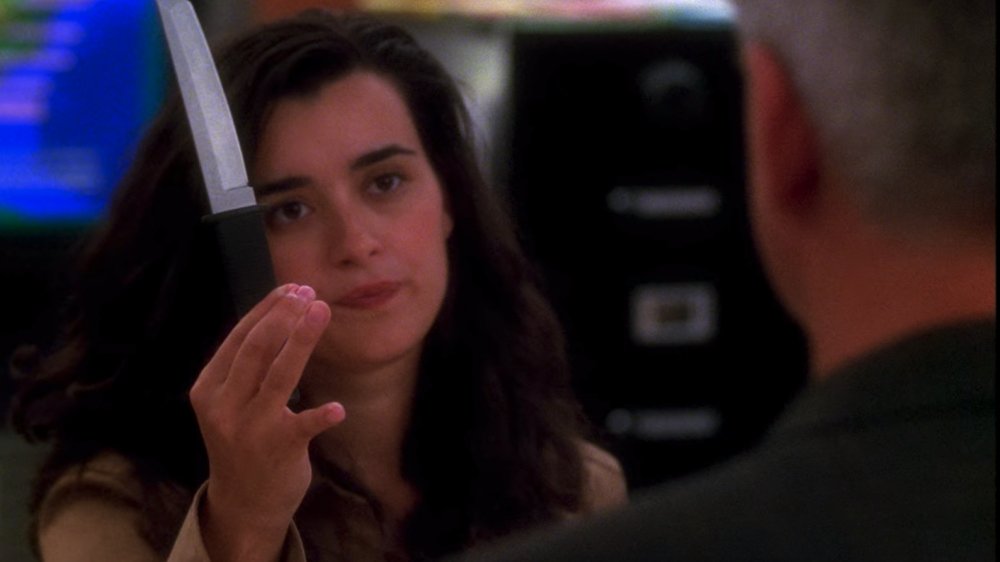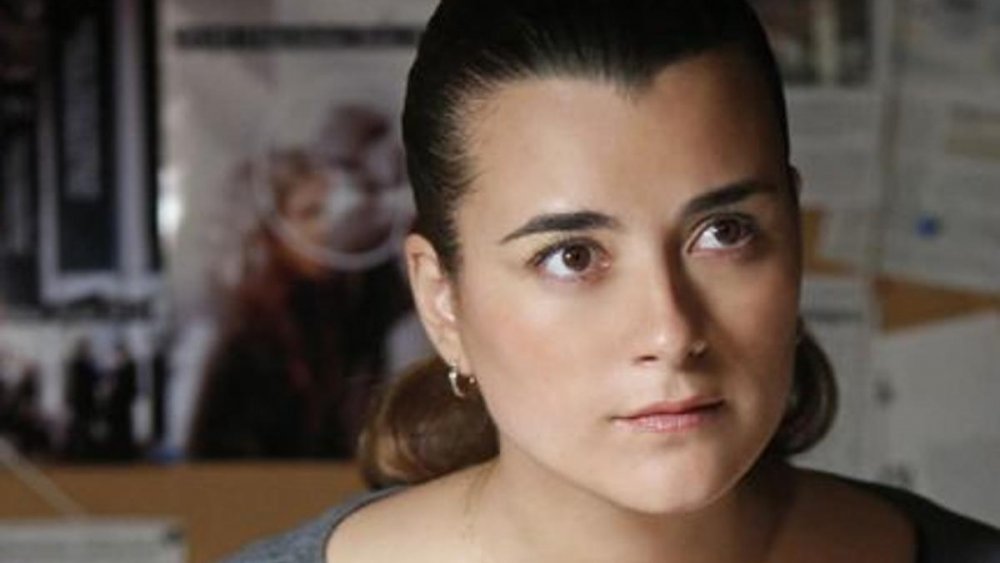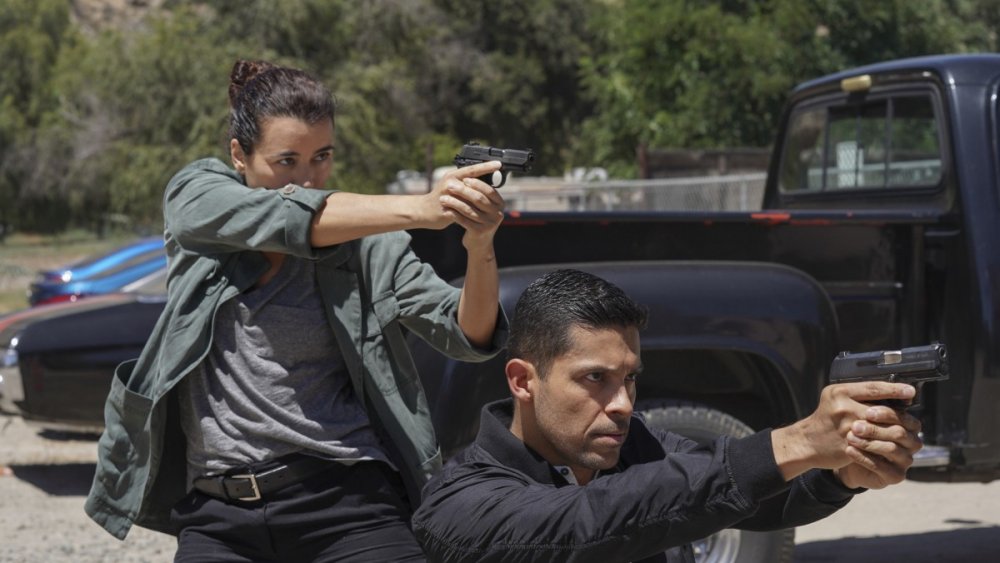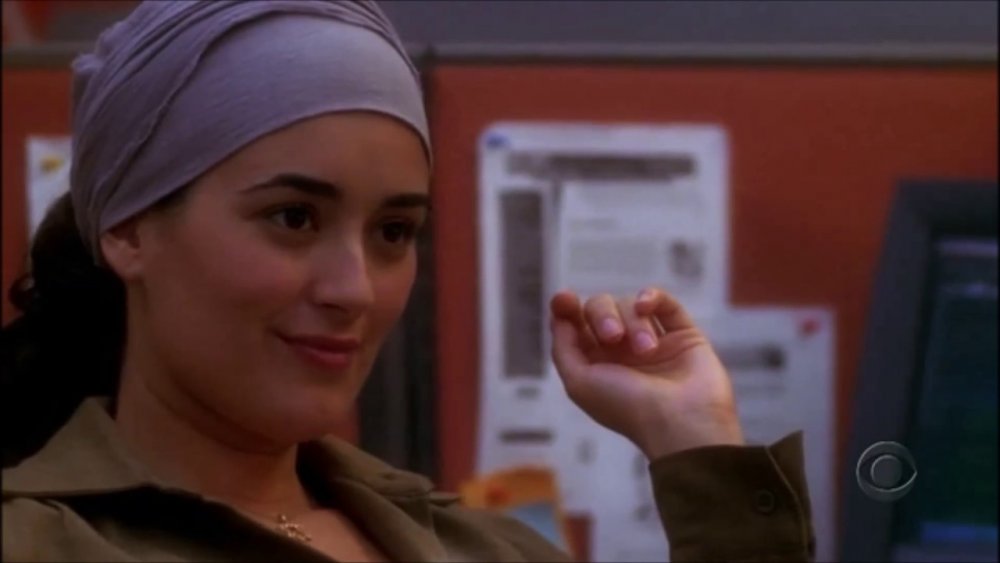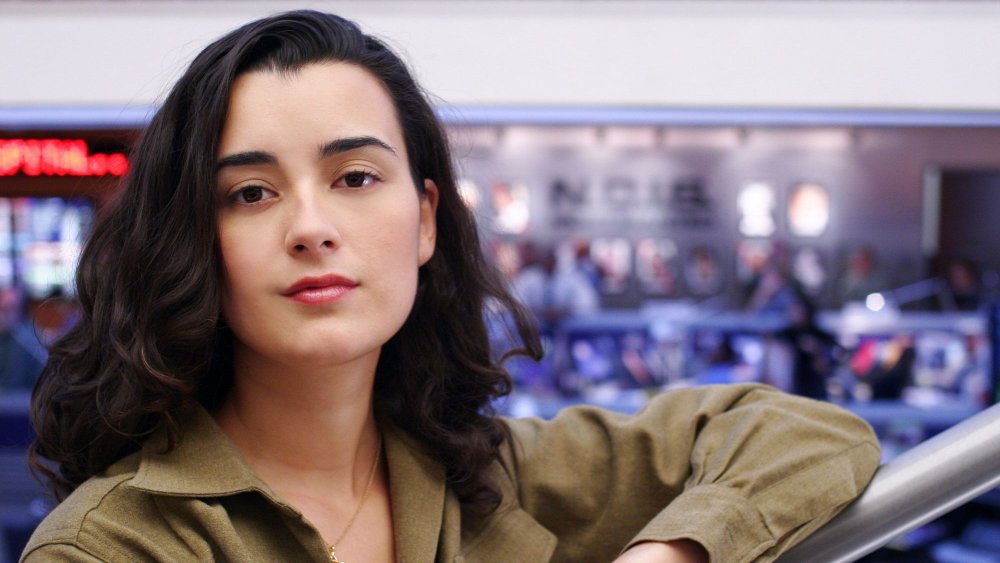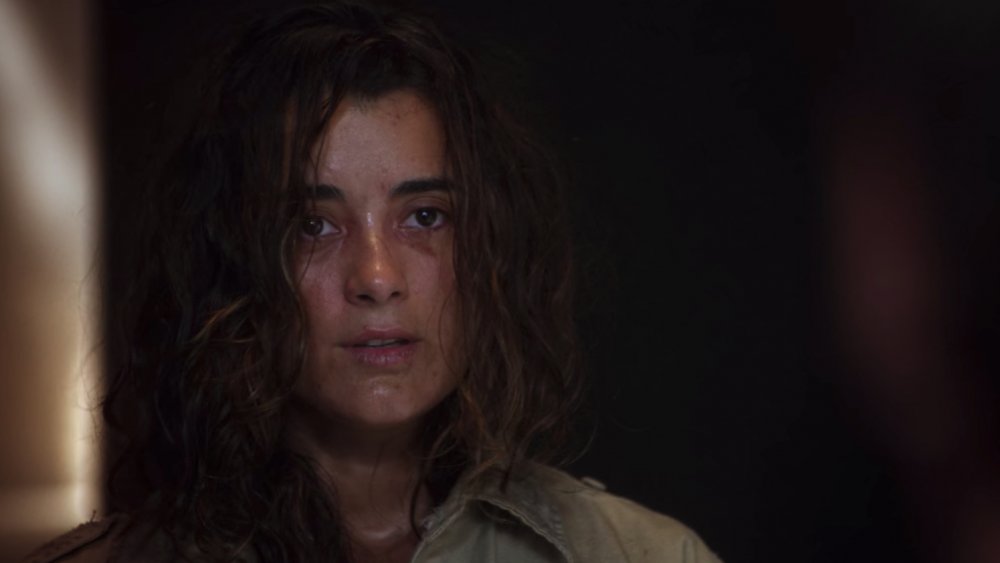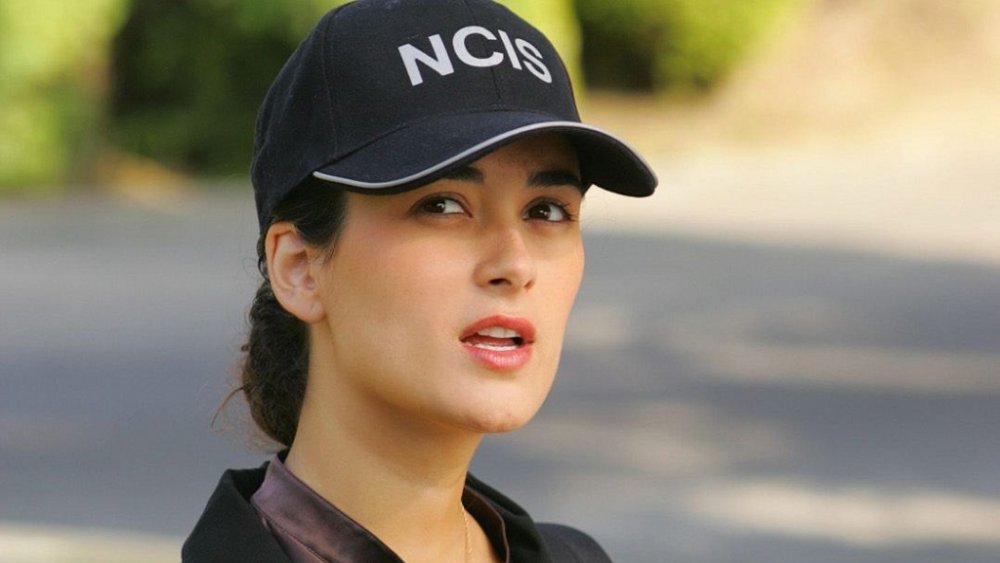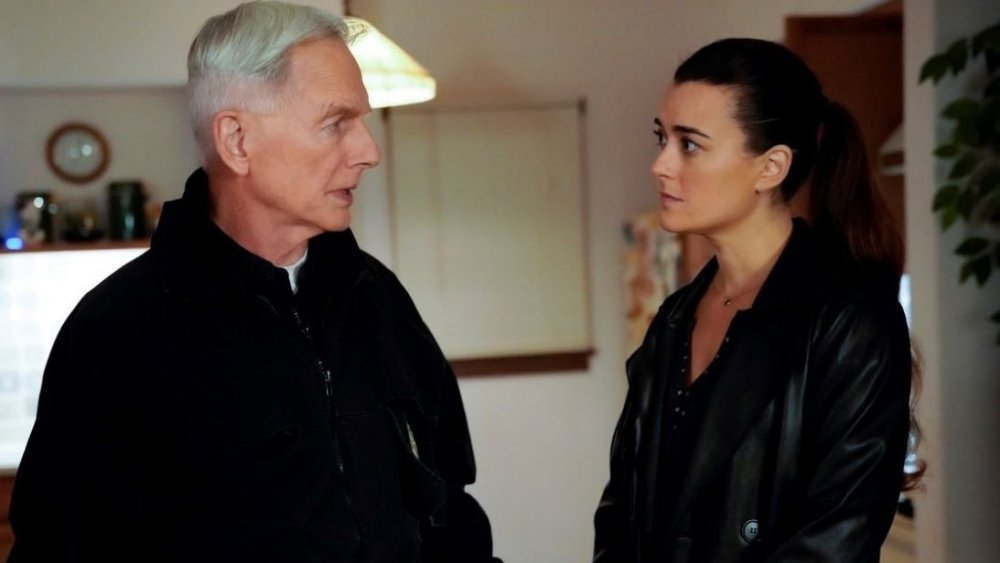Ziva David's Entire NCIS Backstory Explained
Ever since she was introduced in season three of NCIS as a Mossad agent with killer instincts, Ziva David has been a crucial part of the team. Though Leroy Jethro Gibbs and other NCIS agents are initially hesitant to trust Ziva, she eventually proves her loyalty and becomes a beloved member of the team. Among audiences, Ziva quickly became a fan favorite, due to her physical prowess, compelling storylines, and inability to remember American idioms. Ziva's personal life often bleeds into her professional one, whether it be her tenuous relationship with her family or her will-they-won't-they romance with coworker Anthony DiNozzo, which lasts more than a decade. She's incredibly good at what she does, but she's also only human — and that's why fans, and her colleagues, love her.
Ziva's upbringing in Israel is also explored over the course of her time as an NCIS mainstay, including the ways in which growing up in the thorny center of the Israel-Palestine conflict has shaped her worldview. Unlike many other characters who first see violence as a part of their work, Ziva has been acquainted with war and loss from a very young age. Indeed, she's been affected by violence since long before she signed up to be a Mossad agent, let alone joined NCIS. Altogether, Ziva David has the one of the most elaborate and thoroughly fleshed-out backstories of any character in NCIS. We're here to break it down, from beginning to end.
She was born and raised in Israel
Ziva was born in Be'er Sheva, a city in the Negev desert in southern Israel. Her parents are Rivka and Eli David, and she has two siblings: A younger sister named Tali, and a half-brother named Ari Haswari. Ari is a major adversary of the NCIS team in season two, and Ziva is actually introduced as his Mossad control officer before it's revealed that they are half-siblings.
Ziva's life as a Jewish Israeli is a huge milestone for representation in network television. Ziva's religion and ethnicity influence her character without completely smothering her in stereotypes, a delicate balance critics have praised. This can be seen in smaller details, like the Star of David necklace she wears throughout the show, her observance of Shabbat, and her taste for falafel, but also in larger story arcs involving her relationship with her father, a Mossad agent who later becomes the director of the Israeli intelligence agency.
The actress who portrays Ziva, Cote de Pablo, is neither Israeli nor Jewish, but hails from Chile and was raised Catholic. She worked with a Hebrew teacher to learn her Hebrew lines, and was later invited by the Israeli department of tourism to visit her character's homeland. Her travels there deeply moved her, and have informed her portrayal of the character ever since. "It was more of a trip for Ziva than for Cote," the actress remarked. "It absolutely informed my insights into her soul."
Ziva's non-traditional upbringing
Ziva's father's involvement in Mossad shaped much of Ziva's childhood. In the season three episode "Ravenous," Ziva mentions doing ballet as a child, noting that her father never came to any of her performances. Her father did spend some time with her, however, albeit entirely on his own terms: He trained her and her siblings in espionage and combat from a very young age. One instance of Ziva's survival training involved Eli blindfolding his two daughters and bringing them into a forest, then telling them to find their way out alone. As a result of Eli's training, Ziva is an expert combatant. Though her relationship with her father is complex, she is grateful for the worldview he imposed upon her. Eli made it clear to her that one "can never truly know a person or their secrets," a lesson she has taken to heart.
All of this makes it easy to see why Ziva is regarded as a bit of a tomboy in adulthood. When her character was first introduced in 2005, there weren't many shows that depicted women like Ziva: Smart, competent law enforcement agents who aren't afraid to get their hands dirty. In fact, in 2011, New York Times critic Mike Hale wrote that Cote de Pablo's portrayal of Ziva is part of a "growing group of female action heroes who are infiltrating cop shows, spy shows, science-fiction shows and other genres where men once did the lion's share of the enforcing."
Her parents' rocky relationship
To say that Ziva's parents have a complicated relationship would be a massive understatement. Mossad agent Eli had an affair with a Muslim doctor named Hasmia Haswari while undercover as Benjamin Weinstein, a doctor working with Haswari in a hospital in Jerusalem. Haswari then had a son named Ari, whom Eli groomed from childhood to infiltrate Hamas as a double agent for Mossad. As NCIS fans know, Eli's plan backfires as Ari eventually double-crosses Mossad and heads up an Al-Qaeda terrorist cell in Washington.
Rivka, Ziva's mother, separated from Eli when Ziva was a child, allegedly because she disapproved of Eli's line of work. She took Ziva and her younger sister Tali with her, supposedly to protect them from Eli's dangerous job and his cold nature towards his children. Ziva mentions that her parents attempted to make up, but ultimately divorced when she was 13, due to her father's affair with another Mossad officer.
Ziva doesn't speak often of her mother, as she died before the events that brought Ziva to NCIS. However, she does say that her mother taught her how to drive, though apparently not every well: Ziva is teased by her teammates for being a reckless driver. Rivka was also slightly uncomfortable with Ziva's interest in boyish, war-themed toys like Battleship and G.I. Joe, but she clearly lost that battle early on.
Early experiences with grief
The violent conflict between Israel and Palestine was ever-present in Ziva David's upbringing. Despite her father's work in Mossad and the fact that she's witnessed attacks firsthand, Ziva doesn't hold prejudiced feelings towards Muslims in general. She is, however, patriotic and pro-Israel, and her views on Hamas are heavily influenced by her witnessing their acts of violence. In fact, Ziva has been intimately affected by the conflict in her homeland from a very young age. In the season five episode "Tribes," Ziva says her childhood best friend was a Muslim girl who was killed in an Israeli airstrike when she was 12. Additionally, her younger sister Tali was killed in a Hamas suicide bombing when Ziva was a young Mossad agent. These deaths haunt Ziva throughout her adulthood, her sister's death particularly affecting her sense of justice.
Violence wasn't the only difficult aspect of Ziva's life growing up. Though she had some normal childhood hobbies like dancing and sports, she mentions facing severe adversity early on. In season four's "Friends and Lovers," Ziva recollects experiencing hunger as a child, even going so far as eating maggots to survive. Ziva's early experiences with grief, deprivation, and trauma gave her a much different childhood than the other NCIS team members, who grew up in the United States. As she says during one conversation with Anthony DiNozzo, "In my world, you grow up fast. You have no choice."
Following in her father's footsteps
After Ziva finished high school, she served in the Israeli Defense Forces. This is typical for Israelis: Most citizens over the age of 18 (barring members of certain groups) are required to serve in the IDF. As soon as she was able, Ziva joined Mossad, Israel's national intelligence agency, where her father served as deputy director, and later, director. Due to her upbringing, she quickly excelled within the organization, and was assigned to be a member of a secretive department within the already clandestine Mossad, called Kidon. Kidon, which roughly translates to "bayonet" or " tip of the spear," is allegedly concerned with the assassination of Israel's enemies. They have been referred to as "the Mossad within the Mossad," and only accept the most elite fighters. Ziva being one of their number means she is one of the most expert warriors of the entire NCIS crew, and, frankly, something of a one woman army. Ziva isn't just distinctly deadly among her NCIS teammates — she's distinctly deadly pretty much anywhere on the planet.
Prior to meeting the NCIS team, she also saved Jennifer Shepard's life during a mission in Cairo. Shepard later becomes the director of NCIS and vouches for Ziva's loyalty.
Her brother, her enemy
Ziva David is first introduced to the NCIS universe as Ari Haswari's Mossad control officer. Her character is a replacement for Special Agent Kate Todd, whom Ari had killed at the end of season two. Little does the team know at the time, she is also his half-sister. Though they did not grow up together, Ziva appears to have a close enough relationship with Ari that she's willing to look out for him.
While Gibbs and his team frantically search for Ari and process Kate's death, Ziva maintains Ari's innocence and alliance with Mossad. Throughout the season three opener, "Kill Ari," Ziva's connection to Ari is explored in greater depth. Their father, Eli, raised Ari much like his siblings: He was subjected to military training, imbued with a cynical worldview, and drilled in combat. Uniquely, however, Eli raised him to become a mole within Hamas. Instead, Ari became embittered towards his father and his cause, and became a double agent for his father's enemies.
Despite Gibbs' insistence that Ari is targeting the NCIS team, Ziva plans to help Ari escape by giving him falsified travel documents. Later, however, she is present in Gibbs' house when Ari corners him in his basement and confesses to killing Kate and being involved in terrorism. Before Ari can kill Gibbs, Ziva shoots him dead. It is a turning point for her character on every possible level, and haunts her through the rest of the series.
Proving herself
After escorting Ari's body back to Tel Aviv, Ziva requests to work as a liaison officer with Gibbs' team. NCIS director Jenny Shepard approves the request, though Gibbs and his team are much less enthusiastic about Ziva's arrival. Despite her killing Ari to protect Gibbs, they still don't fully trust her, especially in the wake of her brother's actions. Gibbs doubts Ziva's ability to work in law enforcement, telling Shepard, "Mossad trained her to spy and kill, not investigate crime scenes." Still, Gibbs trusts her more than the others, who are not as quick to bring her into the fold. Abby, who was close with Agent Todd and sees Ziva as an inadequate replacement, is particularly cold during their first meeting, intentionally mispronouncing Ziva's last name. In every possible sense, Ziva is different from the NCIS team: Her training is unique, her ties to a foreign military are literally familial, and her childhood was splattered with blood. Plus, she doesn't grasp American sayings.
Ziva slowly gains her coworkers' trust by proving to be a valuable asset. When a map is stolen from Agent McGee, Ziva is able to recreate it from memory despite only having seen it for a few moments. In that same episode, a Smithsonian scientist holds Ducky hostage, and Ziva is able to disarm the assailant before Ducky could be harmed. After saving Ducky's life, the rest of the team begins to accept Ziva as one of their own, despite their reservations.
Forever haunted by what she's seen
Not much is known about Ziva's time in Mossad, before she came to work with the NCIS team. Every so often, however, she tells her coworkers gruesome stories from her previous missions. At one point, she recalls how one of her Mossad coworkers was beheaded after infiltrating a Hamas cell. After this incident, Ziva comes to believe that being captured is a fate far worse than death. In season six, Ziva's worst nightmare comes true when she rejoins Mossad and is taken captive by terrorists in Somalia. During her time in captivity, she is assaulted and interrogated for information. Her ordeal is horrific, encompassing a nightmarish range of abuse. After she's rescued and returned to the NCIS team, her demeanor is noticeably different. While she doesn't talk with her co-workers about the specifics of what happened to her while she was held captive, it's clear that it was a traumatic experience for Ziva, and that she is forever changed by it. Given how steely violence and trauma had already made her, that's seriously saying something.
Many other experiences haunt Ziva, especially the loss of her sister, Tali. She says her sister was "the best of us," referring to herself, Tali, and her half-sibling Ari. Initially, she wanted fierce revenge, and indeed, a more angry, dangerous side of Ziva can be glimpsed when she talks about Tali's death. She eventually names her daughter Tali after her late sister.
Utilitarian style
When we first meet Ziva, her style can be described as somewhat plain. She often wears cargo pants and combat boots, setting her apart from her coworkers' less militaristic outfits. These wardrobe choices do a few things for her character. They make it easier for her to conceal weapons, for one thing: Ziva is never without multiple roomy pockets in which all manner of things might be stashed, and her clothes aren't terribly tight, allowing for things like knives to be concealed without making a noticeable bulge. Moreover, they show that Ziva has a no-frills aesthetic to match her no-nonsense persona. She is a soldier, first and foremost, and the entire world is her battleground. Thus, she is prepared, at all times, to go to war — and that means sacrificing fashion for function.
Cote de Pablo, the actress who portrays Ziva, has said that she tries to stay away from a stereotypical "beautiful soldier" look, because it wouldn't be true to the character. Still, as Ziva's character evolves on the show, so does her style. She eventually begins pulling her hair back into a sleek ponytail at work, and incorporating more traditional work-wear looks into her wardrobe in later seasons. Unlike her other female colleagues, Ziva wears very minimal makeup, adding to her practical sense of style. She's there to get work done, and her clothes prove it.
Her past informs her relationships with the NCIS team
Over the years, Ziva develops deep bonds with her NCIS teammates. These relationships are often influenced by people from Ziva's past, in a wide variety of ways. Initially, Ziva is hesitant to truly trust anyone outside the confines of work, given her background in espionage and her militaristic upbringing. Plus, being betrayed by family members kind of has a way of keeping someone from forming tight bonds. Little by little, however, that changes, and Ziva is able to develop some truly meaningful ties.
The trust between Gibbs and Ziva begins when she shoots and kills Ari to save Gibbs' life. Throughout later seasons, Ziva treats Gibbs like a father figure, despite her father's presence in her life as a member (and eventually director) of Mossad. Her relationship with her father is always emotionally distant, however, as Eli is wholly dedicated to his work. After Ziva is captured and tortured in Somalia, she holds her father responsible. She attempts to leave Mossad and join NCIS permanently, but her father attempts to prevent her from leaving by framing her for a murder. Though Ziva is able to clear her name, she fully renounces Eli and completely severs ties with him. This changes her bond with Gibbs too, as their surrogate father-daughter relationship grows bigger, to fill the new void in Ziva's life. She often calls upon Gibbs when she needs help, and he regularly refers to her as "kid."
